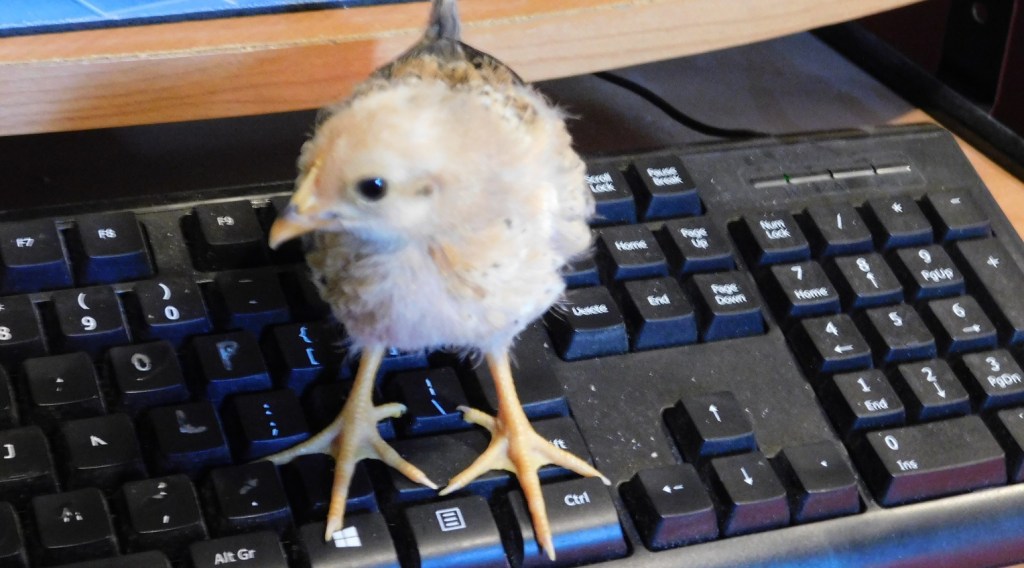I’m not the world’s worst first reader.
Okay, I might be, but it’s a new development. Most of my writing life I’ve been in writers’ groups where reading for others was as needed as reading my own stuff. The last ten years have just been weird with my life routinely entering vortexes of chaos. I’d say it’s getting better, but maybe it only feels better from the inside, and maybe the next vortex is waiting to hit me. I don’t know. I know I’m trying to recover and catch up and get back to a semi-regular schedule, in which reading for others happens on the regular. I promise.
However, while on that, it occurred to me it’s a good time to talk about how to read for others.
First of all, if you’re waiting for me to read something of yours, don’t assume I hated it, and don’t be alarmed if I take what seems like forever to read.
If I have read it and had issues, I already sent you an email about it. If I haven’t sent you an email or called you about it, I haven’t read it.
So, the first thing to get rid of, from a “I gave someone something to read” pov is “don’t assume they hated it.”
And part of it is to rid yourself of what I call “School mentality.” Just because I’m a multi-published writer, who’s made a living at this word thing for almost thirty years, it doesn’t mean I’m a professor of writing, and it doesn’t mean you’re a student, and it doesn’t mean if I don’t like your book that it’s bad, or even that you’re doing it wrong.
I know it’s near impossible to rid yourself of it, because of how our education system trains us, but truly, truly: this is not how it works. Just working as a judge for contests which I started doing almost thirty years ago will tell you that. Some of the entries you rank dead last will end up winning because all the other judges are idiots think it’s the best thing since sliced bread. In that particular case, I want to say I was right and they were wrong, since that entry was not only heavy handed climate doomerism, but outright impossible. I.e. it was a near future story, and in the early 2ks (this was in the late 90s) you couldn’t go outside without a mask, because the pollution made it impossible to breathe. Since it was SF I think it deserved to be kicked to the curb. But my fellow judges who were ah… lefties and virgin of scientific knowledge thought it was amazing. So it won first place.
But the point it, the reason someone bounces off your writing might not be anything integrally wrong with it. In fact, there’s a very good chance I’m just not the intended audience. Which can be mitigated, to an extent by the fact I read cross-genre continuously, and am willing to be very tolerant of different opinions shaping your writing. What do I mean by that? I mean if you’re cueing the relationship romance style (because your book is an SF romance) I’ll probably realize it. And if you truly believe that in 30 years Florida will be submerged, I’ll think you’re a loon, and tell you to loosen your tinfoil hat, but I’ll also know there are a lot of readers who’ll lap that up.
I’m saying this because once I was as you are now, and my mentors told me things like “You can’t write books set more than 100 years in the future, because humans will either have enhanced themselves so they’re unrecognizeable, or gone extinct.” and told me my stuff was unsaleable based on that alone. While I wanted to write space opera. Or I got rejections telling me that my world was unpleasant or “hateful” and I didn’t realize I wasn’t bowing to the idol of the day and therefore assumed to be “the enemy.”
So, first up, I don’t care how “experienced” an author is, just because they hate your stuff, it doesn’t mean your stuff is bad. Judging by how hard I bounce off some best selling space opera on Amazon, my tastes are not center-mass for the reading public, for instance.
Next, if I’m reading to critique, it’s not the same as reading for fun. Okay, there’s an edge. I mostly read Dave Freer for fun, and it’s really hard to read him to critique. Impossible really, if I’m even slightly tired, because I keep forgetting I’m supposed to give him notes. Usually I catch typos and that’s about it.
But if you aren’t Dave Freer — pauses while you check — I probably am not continuously forgetting I’m supposed to critique. And reading to critique is… a different hat.
What this means: normally, say I just downloaded an unknown from Amazon. They have about 10 pages to make me interested. If at page ten I have no idea who I’m reading about or why, it gets returned. If at page ten, I don’t know if I’m reading a mystery, a science fiction or a romance, it goes back.
Is that mean? Yeah, yeah, it is. It’s also frankly sane. For two reasons: first, because it’s my time, and I’m not getting it back. (And I’m reading for fun and paying for it.) Second, because I have yet to find a book that loses me in the first ten pages getting better. No, seriously. I once stuck it out (I don’t remember why, but I think I was out of download range, or in Portugal or something) and read an entire “Victorian mystery” to the end after it lost me the first ten pages, and nope, it never got better. By the end, it had a murder…. 2/3 of the way in, but nothing was ever resolved, or made any sense, and frankly it was mostly devoted to ensuring we knew Victorian England was dirty and unfair and…. yeah.
Every other time I’ve stuck with it, for whatever reason half way or two thirds of the way or whatever, it never gets better.
HOWEVER that’s for books I’m reading for fun. If I’m giving you a critique, that’s absolutely the worst critique you can get from me: You lost me in the first ten pages. But I’ll tell you why. (The most common and hardest to fix flaw is that you jumped heads so much (every paragraph, say) I never figured out what the character or the story was. The second most common is that your setting is so vague I don’t know if we’re floating in the air or three miles under water.) And sometimes it’s even an easy fix, like you cued the wrong genre and then it felt like you hit me with a baseball bat when you ground gears on page 8.
The second worst critique you’ll get from me is that you start too soon. Apparently that’s a newbie mistake, though not one I ever made for reasons of my not having read a lot of how to before I started. See, newbies get confused about that “show the normal world” and will have pages and pages of nothing, before the story starts. (A paragraph or two is enough for showing the normal world. If the normal world is our normal world, then “I was walking down mainstreet early morning and wondering if I should stop at starbucks when the elf archer shot at me” is enough for the “normal world” at least for a short story. Because it tells you the “normal world” is ours or just about.)
Anyway, that’s the second worst and most common. BUT note I will read through what you gave me even if you have those mistakes.
The difference is that if I’m reading to critique I’ll note the mistake, then try to figure out what’s at the root of it and how to fix it.
I might tell you “Your main character is profoundly unpleasant” which is a valid critique. But I also get that sometimes main characters are profoundly unpleasant so I’ll try to figure out how to draw the reader in even if the character is a butthead. Because my intention is to optimize your story to make it what you want to be but still sell, not to make it to my taste.
Okay, that’s my message to the poor sods waiting for me to read them.
If you’re asked to beta read for someone? Well, most — like 80% of readers — are about as useful as soaked kleenex, so let me help you be a little more useful to the writer who asked for your opinion.
1- You’re not being asked to PROOF READ. For some reason that’s what most people asked to read someone’s novel think is their job. It’s not. Unless your writer is very weird, that’s not what they want from you. In fact always ask if they want that, because if they’re like me, the thing is going to get yanked around/twisted/changed so much in first rewrite that all your proofreading will be useless.
2- Don’t say “this is very well written” if what you mean is the words are lovely. I mean, okay, tell the writer “the words are lovely” if you want to, but the fact is that if the writer is even slightly experienced he/she’ll panic. Hard. Because that’s usually “The words are lovely. I can’t make head or tails of the story.” BUT more importantly, the words are the least of it, they can always be completely changed. So, what are you reading for.
3- Does the story make any sense? Do things happen in a natural/real way? When your bad guy decides to kill people, does the writer have to resort to “and then he went crazy” because there’s no other explanation? Are people introduced naturally. Like, for instance, a father doesn’t say “my daughter Genevieve, who is 14 years old, was born during a snow storm, has blue eyes and fair skin, and loves cats and pizza.” Or at least he doesn’t say that when casually thinking about his daughter. Because that’s not natural. Does an entire portion of the plot require the main character to be deaf, dumb, and an idiot to boot? (The romantic portion is allowed to do this, particularly if the book is NOT a romance.) Do you have enough of a sense of worldbuilding, and how things work in that world from the beginning, so that you don’t discover on page 40 that there is magic in what you thought was a cozy mystery. And ALWAYS “is there a plot?” I.e. do things actually happen? (To date I’ve only read one story that was 80k words of shopping, breakfast, lunch and nice outings, but no plot. In the writers’ defense, I think she mostly wrote fanfic, where that’s actually permissible. For the unitiated, a plot is a sequence of linked events, with the later ones dependent on the earlier ones, that moves towards a resolution and forms a cohesive whole.) The “there is no plot” is possible the hardest to suggest a fix to, and usually will involve a long talk with the writer to “find the plot.” The second hardest and far more common is “Things happen around your reader, but he’s really just seeing it, and never someone things even happen to, much less a plot driver.” It’s fixable (the narrator doesn’t need to be the main character, though he can be.) But it will take work.
4- Supposing none of that is wrong with it, is the novel kicking you out every other page? Why? Usually there is a reason, including side plots that make no sense with the main plot and/or the writer just has threading troubles. I.e. the writer has issues say keeping the action going, and gets lost in description. Or gets so excited about the dialogue, he/she never tells us they drove across town. That kind of thing.
5- After that it’s minor stuff. My usual problems (my raw drafts being fairly clean — though not of typos –) are things like having two nights in a row, without a day in between. Leaving a car somewhere, then driving it 100 miles away. Forgetting a character has a broken leg and having him run. Most of these, btw, are because there was a long stop in the writing process, so when I resumed I’d forgotten details.) Definitely tell the writer those, also if the character abruptly changes sex or age (you’d be surprised how easy it is to do that with “barely walk on” parts, like the waitress becomes a waiter, or the cobbler ages 80 years by the time he shows up again 3 chapters later.) This is barely above “find all the typos” but it is important, because it tends to get lost in the shuffle.
6 – Tell the writer if you lost interest through a sequence and why. The why is important. Say I have two chapters of sex. (I don’t. Ever. Sometimes I have a paragraph indicating sex happened, but that’s about it. But other people do.) Feel free to tell me “I lost interest here, because I don’t see how it advances the plot, and I tend to skip hide the sausage scenes. Or at least skim them.” Or you know “I didn’t figure out why all of a sudden she was shopping for a dress while running from the police. I figured out afterwards it was to change her look, but at the time it annoyed me, so you might want to give an indication why she’s doing this, early.”
The why is important, because it might be a “you” thing. Like, I do in fact skim all sex chapters, unless the plot requires the sex to be good/bad/upside down (which you usually have cued from before.) BUT this is not true for every reader, so it’s important the writer knows “this is a me thing.”
7- Tell the writer if you think the worldbuilding was violated. It doesn’t mean it was, but that the writer needs to know it feels like it. Like, say, in a world with magic, why aren’t they repairing that tire magically, but instead are waiting for Tripple A? I mean, it could be the writer forgot to tell you magic doesn’t work on rubber, but the writer needs to realize that.
8- DO NOT — this is very important — rage at the writer for something you perceive as “nasty” or “evil” or “the wrong politics”. To say “I’m sorry, I couldn’t read it, because Florida is underwater, and everyone grew gills in 20 years, and I can’t buy that.” Or “I was kicked out by the fact the characters are gay.” It’s not okay to use “How dare you?”
Look, I’m aware books that have gay characters, like A Few Good Men or No Man’s Land will put a lot of people off, because…. well, because even if the sexuality of the characters doesn’t bother us, we’ve been trained to expect preaching in such books. Or explicit sex. That’s fine. I know that. I am that half the time. Now, of course, if you have read me before; particularly if you read my blog, you should know I’m not going to suckerpunch you either way. (And also that there is a reason for me to write a character that most people assume is “enemy territory” (Well, to reclaim the territory is PART of it, but not really. This thing isn’t that under my control.) Usually a reason having to do with worldbuilding or plot. Heck, in NML “the main character starts out gay then becomes undefinable” is the least of such cues. And no, there is no explicit sex, ever.)
However, I do get that the back of the brain if the back of the brain. It’s not rational. If you’re continuously bothered by the book and it’s because the character/plot BUG you, you’re not going to give me a fair or decent critique, and you ARE likely to rage at me. So don’t. Say “I couldn’t read this, because–” Yeah, you’ll panic me, because I panic easily. BUT it’s less of panicky than having you really rage and angry at me and neither of us has any idea why.
Anyway, you might still trip on things and might not get stuff done they need, or upset them but this should make you the most useful reader possible.
Good luck.





21 responses to “Reading For Others”
Helpful thoughts, thank you!
Was in an online writing group once; my only virtue was persistence in that if you submitted a novel to the group I would most likely have it read and some kind of comments (helpful or not, I don’t know) submitted before deadline. I tried not to get hung up on typos unless it was a really consistent mistake or it left me confused about what just happened. The hardest manuscripts to critique were just…flat and impersonal. They generally had a pretty good premise, and incidents that weren’t any more contrived than anyone else’s, but there was no sense of mood or action and only a little characterization and world-building. It was just really difficult to come up with anything much to say except “well, you have cool story ideas and keep things moving along, but I’m just not feeling it.”
When you’re more experienced you usually can mark places they can “ramp up the feels”
When I read things for people, I try to be precise and also as encouraging as possible. “This bit went clunk, but it might be because … I really like what you did over here.” I also work very hard not to rewrite their work in my voice, or critique things just because I would have done it differently. I detest academic reviewers who do it, so I try hard not to be That Reader.
Hmmm, I might have to keep this post around when/if I critique someone’s work. (I’ve only alpha/beta read short stories) I’m not worried if someone doesn’t respond to my reading request right away because I know the people whose opinions I give weight to are busy. I’m just happy to have them look at my work. There are no deadlines for me yet, as I’m nowhere near being ready to try to publish. I want to make sure I can write a decent story before I try that.
Is it considered bad form to have more than one critique person? Like you say, if you don’t like the story, it doesn’t mean it’s bad, just maybe not your genre or style of story.
Usually I send out to twenty people. I’m lucky to get 6 back.
I have all my novels out waiting for replies from one person. Most of my requests go unanswered. Fortunately for me, the one person is laid up after surgery so has offered to read all four and critique them for me.
I have a post on ALH you might be interested in. I sent it out a few days ago about a book shop I visited last week.
Based on my inability to find beta readers among friends, coworkers, trivia team members, and, yes, other writers I’ve given up when it comes to shorts.
They get submitted or posted to my Substack after I proof them.
I sent the one novel out to silence as well so I’m saving up cash to go on Fiver and hire one of the many “editors” there. Or maybe I’ll just format it and let it go.
So ask yourself if something does need a beta read? If yes, hire someone. If no, just submit or publish it.
I usually get back 1/4 of the ones I send out. AND remember the one short story I put out last year made me 10k. So….
Well, you do have a tad bit of an advantage on a short over a lot of us 🙂
That said, I think the current era gives younger writers (in career not age) a much better chance to do the “learn writing shorts before tackling novels” than the markets did from the late 70s on (Lawrence Block was telling people not to bother in his late 70s book on novel writing) until maybe a decade ago.
I think so too. If I knew what was coming down the line, I’d have waited.
Really? You would have waited two decades?
I’m glad I waited, I think, although it’s hard to learn new habits at my age, but the stories don’t seem to overwhelm me like they do you. I just couldn’t have taken the mean-girls world trad publishing was when I last looked circa 1990 and I know it got worse after that.
I’d have waited. Close on to three decades now. It took me five years to START unlearning the BAD habits. I mean, I would have written, but for the drawer.
As Shakespeare says, that’s the rub. I’m signed up for Reedsy, but have no money for professional readers/editors. I have to rely at this point of the kindness of readers and many of my informal group don’t participate anymore, so most of my stuff goes unread. It makes it hard to improve or even know if you’re doing it right, or if what you do fits the market if you don’t get feedback.
I don’t have the cash for readers either. That’s part of why “No More than 51 Bad Stories” exists. It gives me some chance for low cost feedback.
Have you checked out the Ace of Spades Writers Group? They claim that’s one of their functions.
“A site for members of the Horde to post their stories seeking beta readers, editing help, brainstorming, and story ideas. Contact OrangeEnt for info:
maildrop62 at proton dot me”
“
Have you checked out the Ace of Spades Writers Group? They claim that’s one of their functions.
“A site for members of the Horde to post their stories seeking beta readers, editing help, brainstorming, and story ideas. Contact OrangeEnt for info:
maildrop62 at proton dot me”
Er….
ScottG – A Literary Horde
June 13, 2024 at 12:40 am
I have not. Thanks for the pointer.
“I have not. Thanks for the pointer.”
We created the writers group for AoS commenters. There are quite a few writers/authors at Ace’s place. I don’t think it will be a problem if you want to join. (Psst. Bosslady is a member) It’s a bit slow right now. Perfessor Squirrel posts a Sunday Morning Book Thread at 9a-12p ET 6a-9a PT you might want to check out. Just drop a comment and introduce yourself.
Click this link: https://groups.io/login and choose email me a link. You ought to be able to look around from there. If not, I’ll probably get a notification and can let you in.
I haven’t been reading, though, because of the damn book that stole my brain.
No problem. Moki – I think she’s posted here – is apparently laid up from an injury. She’s offered to read my work.
My advice.
First, take notes as you go, but revise them afterwards to get them in order. If you realize, at the end, that the unpleasant character was foreshadowing that he would betray them, your original notes about how unpleasant he is may not indicate the real problem, namely that he is too unpleasant to read about, it doesn’t really foreshadow it because the faults are too different, but at the same time, it removes shock value.
Second, go from the big to the middle-sized to the small. For one thing, if the opening and the ending belong to two different stories, the scene that’s pure dead weight may vanish of its own accord in the revision process. (I once got a critique from an online group that was pages upon pages of “change this to that” and it wasn’t even errors, he just wrote differently than I did, and every two or three pages would throw in something larger, and I didn’t get through a tenth of it.)
For stylistic and grammar issues, you may want to mention pervasive issues. Such as the overuse of sentence fragments makes the story choppy AND sacrifices the dramatic impact of a short sentence fragment.
Third, if you do criticize grammar, either for a pervasive issue or because that’s all that’s left wrong, remember you can get it wrong. I particularly notice this when people claim that a sentence is run-on merely because it’s long, or passive voice merely because not much happens in it.